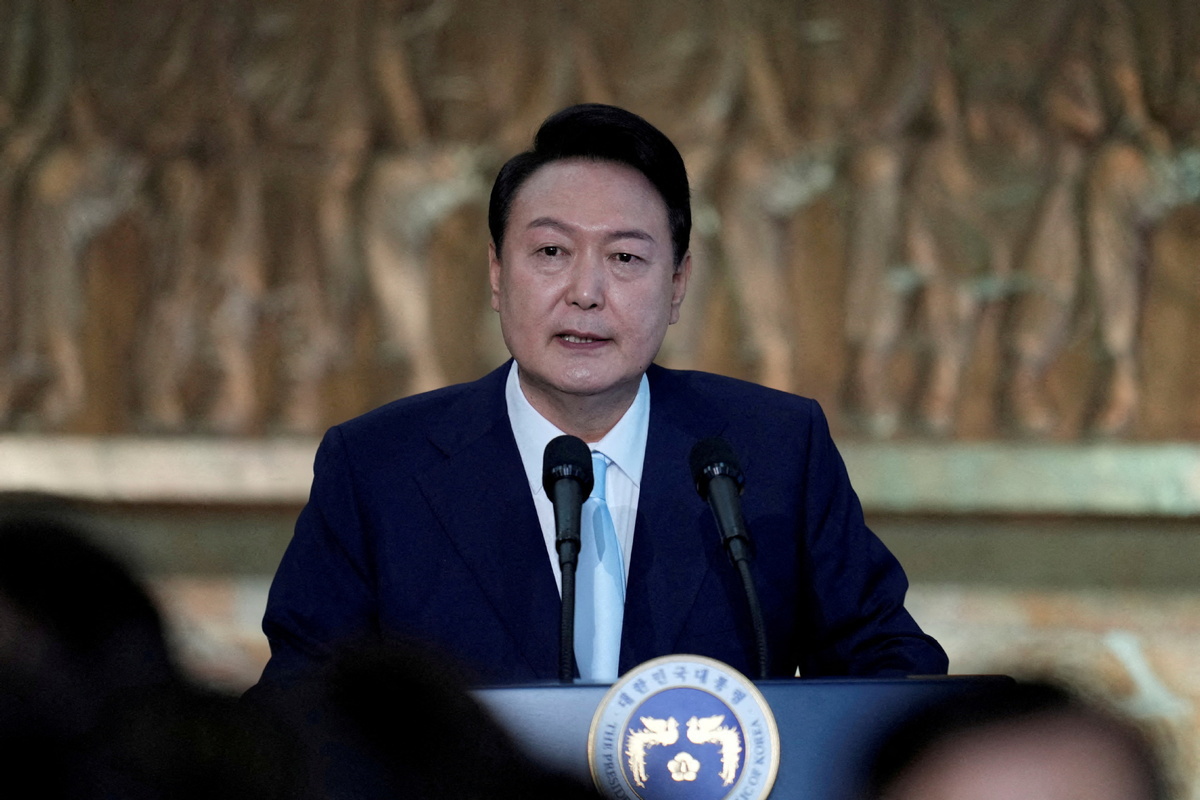Pragmatic diplomacy defends ROK interests: Editorial flash


The phone talks between Chinese Foreign Minister Wang Yi and his Republic of Korea counterpart on Thursday came as a sign of the two countries trying to arrest the deteriorating trend of their ties.
Given the ROK's over-reliance on the US and Japan in working toward a triple military alliance, Wang's expectation for the ROK to "strengthen its strategic autonomy" is effective advice for the latter to protect its own interests in the global diplomatic stage.
For more than a decade China has been the ROK's largest trade partner, with a volume accounting for over 25 percent of the latter's total, which alone explains how much the ROK would suffer if it followed any hegemony's "decoupling" or "de-risking" measures targeted at China. Actually, the ROK has already joined the US-led initiative of limiting chips supply to China, which caused its semiconductor export to drop by 44 percent in January alone, even dragging its total trade deficit to a record-high of $12.69 billion that month.
By stressing the past 30 years of bilateral relations and vowing "de-sinicization" as neither possible nor desirable, ROK Foreign Minister Park Jin sends a signal that the ROK government is coming to recognize how a pragmatic diplomacy will serve the country's interests best by maintaining good relationship and mutual trust with neighbors instead of choosing sides.
Wang's support of ROK on working towards a trilateral summit of China, Japan and ROK also echoes the latter's recent announcement of the plan. Time for the East Asian neighbors to stick together for a talk, instead of allowing any power outside the region to drive a wedge.


































